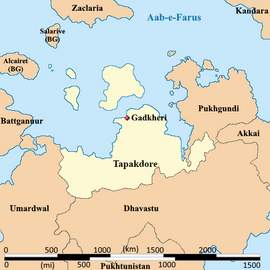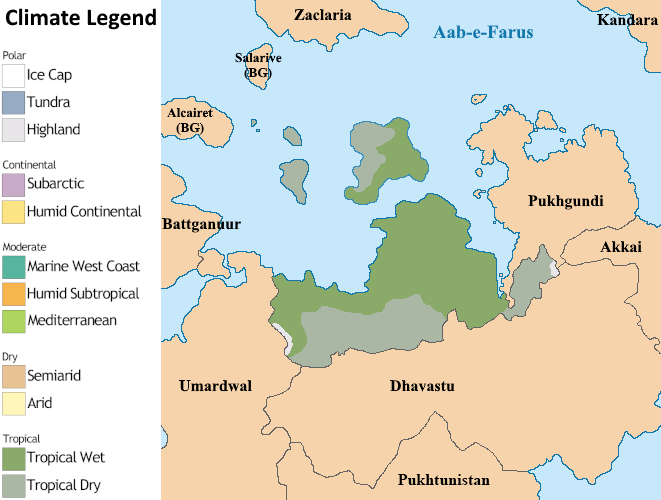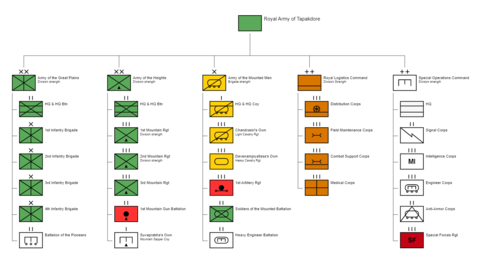Tapakdore: Difference between revisions
mNo edit summary Tag: 2017 source edit |
m (→Economy) Tag: 2017 source edit |
||
| Line 123: | Line 123: | ||
The people of Tapakdore are predominantly culturally {{wp|Sinhala language|Tapakdi}}, {{wp|Punjabi|Peshabi}} or {{wp|Kashmiris}}, speak {{wp|Sinhala language|Tapakdi}} or {{wp|Punjabi language|Peshbi}}, and [[Burgoignesc language|Burgoignesc]], and most practice {{wp|Buddhism}}, with minorities of {{wp|Sikhism}}, {{wp|Hinduism}}, or {{wp|Jainism}} adherents. | The people of Tapakdore are predominantly culturally {{wp|Sinhala language|Tapakdi}}, {{wp|Punjabi|Peshabi}} or {{wp|Kashmiris}}, speak {{wp|Sinhala language|Tapakdi}} or {{wp|Punjabi language|Peshbi}}, and [[Burgoignesc language|Burgoignesc]], and most practice {{wp|Buddhism}}, with minorities of {{wp|Sikhism}}, {{wp|Hinduism}}, or {{wp|Jainism}} adherents. | ||
== Demographics == | |||
<gallery mode="packed"> | |||
File: | |||
</gallery> | |||
=== Linguistic Demographics === | |||
=== Religious Demographics === | |||
==Economy== | ==Economy== | ||
Revision as of 09:24, 11 March 2024
| This article is a stub. You can help IxWiki by expanding it. |
Queendom of Tapakdore | |
|---|---|
|
Flag | |
 Location of Tapakdore | |
| Largest largest city | Gadkheri |
| Official languages | Tapakdi, Peshbi, Burgoignesc |
| Ethnic groups | Primarily Tapakdan, with minority Peshabi, and Kashmiris |
| Religion | Primarily Buddhism, with minority Sikhism, Hinduism, Jainism |
| Demonym(s) | Tapakdi |
| Government | Monarchy |
| Establishment | |
• Independence | 1811 |
| Area | |
• Total | 728,511.856 km2 (281,280.000 sq mi) |
| Population | |
• 2028 estimate | 48,016,260 |
• Density | 65.910/km2 (170.7/sq mi) |
| GDP (nominal) | estimate |
• Total | $825,895,037,203.20 |
• Per capita | $17,200.32 |
| Currency | Common Middle Sea Florin (CMS ƒ) |
| Driving side | right side |
Tapakdore, officially the Queendom of Tapakdore is a developing nation in the Audonian region of Daria. It is bound by Pukhgundi in the north, Dhavastu in the south, and a small stretch of the southern coast of the Sea of Saksona. Its capital and only coastal region is becoming more heavily urbanized with its interior remaining largely rural.
Tapakdore has an absolute monarchy who fills the role of both legislature and executive, and a supreme court, which has been criticized for being a puppet of the monarch.
It is a member of the League of Nations, the International Red Cross and Red Crescent Movement, and many other international organizations.
It is an emerging market, market economy focused on exports, under the watchful eye of Burgundie whose companies have a massive stake in the country's economic activity. It is an active leader in the Middle seas region's economic activity. Recently, exploration companies from Burgundie have found evidence of deposits of rare earth metals that will be mined in the near future. There are fishing, ship breaking, and recycling economies that Burgundie is also investing in to expand and connect to the global trade network. During the colonial period it was a rich source of rubies and sapphires, many of which are featured in the royal scepter and orb of the Great Prince of Burgundie.
Many scholars have criticized its economic governance and politics, arguing that it is merely a client of the Burgoignesc thalattocracy's economic and cultural might.
The people of Tapakdore are predominantly culturally Tapakdi, Peshabi or Kashmiris, speak Tapakdi or Peshbi, and Burgoignesc, and most practice Buddhism, with minorities of Sikhism, Hinduism, or Jainism adherents.
Demographics
Linguistic Demographics
Religious Demographics
Economy
Tapakdore, is nestled in the Middle seas region, and is known for its rich natural resources and diverse landscape, comprising a pristine coastline in the west, expansive plains in the central region, and a formidable mountain range in the east, where rubies and sapphires are mined. Despite its potential, the nation has faced numerous challenges in developing a robust and sustainable economy.
The mining sector, while a source of valuable gemstones, has been marred by underregulated practices, leading to environmental degradation and exploitation of local communities. However, with the support and guidance from nations like Burgundie and others in the Middle seas region, Tapakdore has been gradually implementing some regulations to foster more ethical and sustainable mining practices. The introduction of modern technologies and the establishment of community development initiatives have begun to transform the mining sector into a more responsible and transparent industry, contributing to the nation's emerging market economy.
The agricultural sector has undergone a significant transformation, with the implementation of modern techniques and infrastructure improvements, also sponsored by Burgundie. The nation's fertile plains have become a hub for the cultivation of a variety of crops, like rice, wheat, and sorghum, ensuring food security and creating opportunities for agricultural exports. With the aid of neighboring countries, Tapakdore has invested in agricultural infrastructure like irrigation and renewable power generation projects.
The manufacturing sector, though in its early stages, has shown promise as the nation endeavors to capitalize on its availability of raw materials. With guidance and investment from the Middle seas region nations and Burgundie, Tapakdore is fostering the growth of local industries, focusing on full-cycle internal products (products whose raw materials are available in Tapakdore, can be turned into finished products in the country, and bought and used by the Tapakdi people) and the development of skilled labor, contributing to the overall economic diversification of the country.
However, one of the more contentious aspects of Tapakdore's economy has been the shipbreaking industry, which, until recently, operated with minimal oversight and safety regulations, posing significant risks to workers and the environment. Recognizing the need for reform, Tapakdore has begun collaborating with its regional partners to implement comprehensive safety measures and enforce stringent environmental standards, ensuring the sustainable development of the shipbreaking sector.
Despite the challenges, Tapakdore's export market has shown promising signs of growth, albeit at a slower pace than anticipated. With the support of neighboring nations in the Middle seas region and Burgundie, Tapakdore is exploring new avenues for expanding its export market, capitalizing on its natural resources and the growing demand for high-tech products. Through collaborative efforts and strategic partnerships, the nation is gradually establishing itself as a reliable exporter of gemstones, agricultural goods, and ethically manufactured products, contributing to the steady progress of its emerging market economy.
Standard of living
In urban areas, particularly the capital and major cities, the standard of living has seen noticeable improvements in the last few decades. Access to basic amenities such as clean water, electricity, and sanitation has become almost ubiquitous, thanks to ongoing infrastructure development initiatives supported by neighboring nations in the Middle seas region and Burgundie. Modern housing complexes and improved urban planning have contributed to a more comfortable and sustainable urban lifestyle.
However, rural areas still grapple with limited access to essential services and infrastructure, posing challenges to the overall standard of living. Despite advancements in the agricultural sector, some remote farming communities continue to face difficulties in accessing quality healthcare, education, and reliable transportation. Efforts to bridge the urban-rural divide have been underway, focusing on improving connectivity and providing targeted support for rural development projects, however, those areas which are deemed as key routes for new infrastructure for developing a stronger export market are being prioritized.
The education sector has also seen significant progress, with increased access to primary and secondary schooling across the nation. Government initiatives, in collaboration with international partners, have aimed to improve the quality of education, focusing on enhancing curriculum standards and providing training for educators. This has opened up new opportunities for the younger generation, enabling them to acquire the necessary skills to contribute to the country's evolving economy. The ultimate goal is to meet the Burgogignesc standard of Total Economic Engagement whereby all able-bodied people in the country are contributing to the nation's economy.
Healthcare services have also undergone significant improvements, with the establishment of more healthcare facilities and the deployment of trained medical professionals in various regions in a capacity building effort to train locals to be medical professionals themselves. Efforts to expand healthcare coverage and promote preventive healthcare measures have led to a reduction in certain preventable diseases and an overall increase in life expectancy.
Despite these advancements, income disparities and socio-economic inequalities remain prevalent, creating challenges in ensuring a consistently high standard of living for all citizens. Efforts to address these disparities are ongoing, with a focus on promoting inclusive economic growth and a sustainable distribution of resources. Through collaborative efforts between the government, international partners, and local communities, Tapakdore continues its journey toward enhancing the overall standard of living and ensuring a better quality of life for all its people.
Infrastructure
Roads and rail
Louage
A louage is a minibus shared taxi in many parts of Daria that were colonized by Burgundie. In Burgoignesc, the name means "rental." Departing only when filled with passengers not at specific times, they can be hired at stations. Louage ply set routes, and fares are set by the government. In contrast to other share taxis in Audonia, louage are sparsely decorated. Louages use a color-coding system to show customers what type of transport they provide and the destination of the vehicle. Louages with red lettering travel from one state to another, blue travel from city to city within a state, and yellow serves rural locales. Fares are purchased from ticket agents who walk throughout the louage stations or stands. Typical vehicles include: the MILCAR Jornalero, the TerreRaubeuer Valliant 130, and the CTC M237-07.
Climate

Military
Tapakdore maintains a modestly sized military force, primarily focused on safeguarding national security and protecting the country's borders. The composition of the military reflects a balance between ground forces, maritime defense capabilities, and a small air force contingent.
Royal Army

The Royal Army of Tapakdore, consisting of specialized divisions and brigades, has leveraged surplus military materiel from nations in the Middle seas region and Burgundie to bolster its defense capabilities. The Army of the Great Plains, the Army's motorized infantry division is postured to operate across expansive terrains of the western and central parts of the country, has been equipped with surplus motorized vehicles, including trucks, armored personnel carriers, and utility vehicles, sourced from friendly or sympathetic nations. This surplus materiel has significantly enhanced the mobility and operational effectiveness of the division, enabling rapid deployment and maneuverability on the plains. The Army of the Heights, specializing in mountain warfare, has benefited from surplus cold-weather gear, specialized mountaineering equipment, and rugged terrain vehicles procured through collaborative agreements with Burgundie. These provisions have equipped the division to effectively navigate and operate in challenging mountainous environments, ensuring the readiness of Tapakdore's forces in high-altitude regions along its border with Pukhgundi in the east.
The Army of the Mounted Men is the Army's armored cavalry unit, enhancing the Army's direct and indirect firepower and reconnaissance capabilities. It consists of a light and a heavy cavalry regiment, the former a wheeled unit used primarily for force recon following Burgoignesc doctrine and the latter a heavier, tracked unit with AMY-82 tanks supplied by Burgundie (which it purchased from Yonderre when that country began replacing them in 2016) that is used more for direct engagements with its neighbors, should they invade.
Moreover, the training and advisory support provided to the Royal Army of Tapakdore have been primarily facilitated by the Treaty Observation Corps of the National Gendarmerie of Burgundie. This collaboration has enabled the Tapakdorean forces to benefit from advanced military training programs, tactical expertise, and strategic guidance, fostering the professional development of the army personnel and enhancing their operational readiness. The expertise shared by the Treaty Observation Corps has contributed to the modernization and professionalization of the Tapakdorean military, strengthening its capacity to respond effectively to evolving security challenges in the region.
Royal Maritime Defense Force
Tapakdore maintains a small but competent naval/coast guard fleet responsible for safeguarding the nation's limited coastal waters and maritime interests. This naval force focuses on maritime surveillance, coastal defense, and sovereignty patrols, ensuring the security of it's territorial waters.
Royal Air Force
The Tapakdi air force comprises a modest fleet of aircraft, including transport planes and a limited number of fighter jets for air defense purposes. The air force is primarily tasked with conducting aerial surveillance, providing logistical support for ground operations, and ensuring the protection of Tapakdore's airspace.
Tapakdore maintains a non-aggressive stance in regional affairs, prioritizing diplomatic solutions and peaceful coexistence with its neighboring countries. The nation actively participates in international peacekeeping missions, showcasing its commitment to global security and stability. Furthermore, Tapakdore fosters cooperative defense initiatives and partnerships with neighboring nations and international organizations, emphasizing the importance of collaborative security measures and mutual defense agreements in the Middle Seas region.

